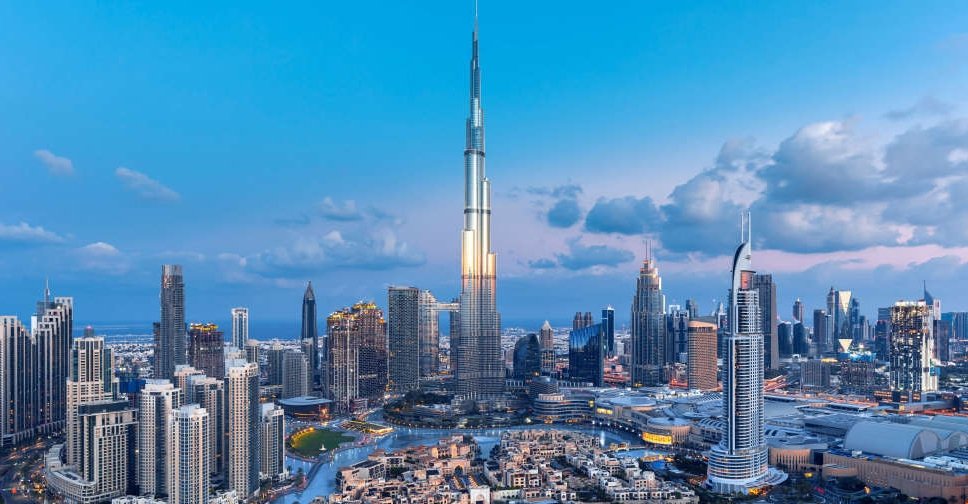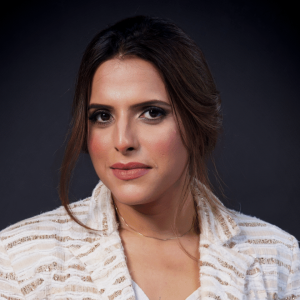Dubai’s economy continues to show remarkable strength and resilience as it posted a solid growth rate of 4.7 percent in the second quarter of 2025, pushing its Gross Domestic Product GDP to an impressive AED 122 billion. This growth confirms Dubai’s standing as a leading economic hub in the Middle East and highlights the success of its diversified economic strategies.
In this article, we will break down what led to this growth, the key sectors contributing to Dubai’s economic expansion, and what this means for the future of the emirate. We will also explore the government policies that have supported this growth, the benefits to residents and businesses, and the challenges ahead.
Understanding Dubai GDP Q2 2025 Growth
The 4.7 percent increase in Dubai’s GDP during the second quarter of 2025 compared to the same period in the previous year shows the emirate’s ability to grow even when facing global economic headwinds. The rise to AED 122 billion is not just a number; it reflects increased business activities, investments, and consumer confidence.

Dubai has positioned itself as a global trade, tourism, and finance center. Its economic model focuses on diversification moving away from relying solely on oil and gas to ensure long term sustainability. This growth in GDP is a direct result of these efforts.
Major Sectors Driving Dubai GDP Growth
Several sectors have played a crucial role in pushing Dubai’s economy forward during this period. Let’s explore the main contributors.

Trade and Logistics The Heart of Dubai’s Economy
Trade and logistics have traditionally been among Dubai’s strongest sectors, and this quarter was no exception. Dubai’s strategic location as a bridge between East and West makes it an essential hub for the movement of goods and services.
Dubai’s ports and logistics facilities have seen increased activity. The expansion of Jebel Ali Port and Dubai Logistics City has allowed the emirate to handle more cargo and re export goods efficiently. Additionally, the rise in e commerce has created new demand for warehouses, delivery services, and supply chain innovations.
This sector’s growth not only supports Dubai’s GDP but also generates a wide range of jobs and business opportunities.
Tourism and Hospitality A Strong Comeback
The tourism sector has bounced back significantly after the challenges of previous years. Dubai’s famous landmarks, luxury hotels, shopping festivals, and world class events continue to attract millions of visitors from around the globe.
This quarter saw a rise in hotel occupancy rates and average room prices, reflecting stronger demand. Events such as the Dubai Shopping Festival and Expo themed exhibitions have been instrumental in drawing visitors and boosting spending.
Airlines have also expanded their routes, making Dubai even more accessible. This resurgence in tourism not only benefits hotels but also restaurants, retail stores, and entertainment venues, contributing broadly to the economy.
Real Estate and Construction Building the Future
Dubai’s real estate sector remains a vital part of the economy. Despite some market fluctuations, demand for residential and commercial properties has stayed strong.
New housing projects targeting middle income buyers are helping meet the growing population’s needs. Meanwhile, commercial real estate has benefitted from business expansions and the arrival of new startups.
Ongoing infrastructure projects aligned with Dubai’s 2040 urban development vision have created jobs and attracted investment. These projects include new transport links, urban regeneration initiatives, and smart city technologies.
The real estate sector’s growth not only adds to GDP but also plays a role in shaping Dubai’s future living and working environment.
Financial Services Innovation and Expansion
Dubai’s financial sector is evolving rapidly, driven by fintech innovation and growing interest from international investors.
Digital banking and financial technology solutions have gained traction, making financial services more accessible and efficient. This has helped attract foreign direct investment and supported Dubai’s goal of becoming a regional financial hub.
Regulatory reforms have made the business environment more transparent and welcoming to global capital, encouraging banks and investment firms to establish regional headquarters in the city.
The financial sector’s growth has a ripple effect on other industries, including real estate, technology, and professional services.
Manufacturing and Industry Steady Growth with a Sustainable Focus
Although smaller compared to other sectors, manufacturing is steadily expanding in Dubai. There is a growing focus on high tech industries and sustainable manufacturing practices.
Investments in clean energy manufacturing, aerospace, pharmaceuticals, and food processing have increased. These industries not only add value to the economy but also create skilled jobs and help Dubai reduce reliance on imports.
Government incentives aimed at promoting local production and exports are helping manufacturing become a more significant contributor to the emirate’s GDP.
Government Policies Supporting Dubai’s Economic Growth
Dubai’s economic success story is closely linked to the government’s forward thinking policies and strategic initiatives.
Economic Diversification Strategy
Dubai has long understood the need to diversify its economy to avoid overdependence on oil revenues. The government has prioritized sectors like tourism, trade, finance, technology, and sustainable energy. This diversification has allowed Dubai to maintain steady growth even when global oil prices fluctuate.
Business Friendly Environment
Dubai has made it easier than ever to start and operate a business. Policies allowing 100 percent foreign ownership in many sectors, low taxation, and streamlined company registration processes have attracted investors from all over the world.
These measures encourage entrepreneurship and foreign direct investment, both critical for economic expansion.
Infrastructure and Smart City Development
The government’s heavy investment in infrastructure ranging from roads and ports to digital networks provides the foundation needed for economic activity. Projects focusing on smart city technologies, artificial intelligence, and renewable energy aim to make Dubai a future ready city.
Sustainability Initiatives
Dubai’s commitment to sustainability is clear in its policies supporting green energy, clean transportation, and environmental conservation. These initiatives aim to make Dubai a global leader in sustainable urban development and attract green investments.
Support for SMEs and Innovation
Small and medium sized enterprises SMEs are vital for innovation and job creation. Dubai has launched programs offering funding, training, and support to startups and SMEs, helping them grow and contribute to the economy.
What Dubai’s GDP Growth Means for Residents and Businesses
The rise in Dubai’s GDP to AED 122 billion brings many positive outcomes for the city’s residents and businesses.
Job Creation and Income Growth
Economic growth fuels employment opportunities across many sectors. As businesses expand, they hire more staff, offering a range of jobs from entry level to highly skilled positions.
Higher demand for labor often leads to increased wages, improving living standards for many people in Dubai.
Improved Infrastructure and Public Services
With higher GDP, the government has more resources to invest in public infrastructure like transport, healthcare, education, and utilities. This improves the quality of life and makes Dubai a more attractive place to live and work.
Business Expansion and Investment
A growing economy attracts both local and international businesses. Companies are more willing to invest in new ventures, expand operations, and innovate.
This creates a dynamic business environment that benefits the overall economy and encourages further growth.
Challenges Ahead for Dubai’s Economy
Despite the positive growth figures, there are challenges and risks that Dubai needs to address to maintain sustainable growth.
Global Economic Uncertainty
Economic fluctuations, trade tensions, inflation, and geopolitical issues globally can impact Dubai’s trade and investment inflows. Being an open economy, Dubai remains sensitive to external shocks.
Real Estate Market Volatility
While real estate growth has been strong, it remains a sector that can be prone to sudden corrections. Overreliance on this sector could expose the economy to risks if property demand slows or prices fall sharply.
Labor Market and Skills Gap
Dubai’s rapid growth requires skilled workers. Balancing local employment policies with demand for foreign expertise can be complex. Continued investment in education and training is necessary.
Sustainability Commitments
Achieving ambitious environmental goals requires ongoing funding, innovation, and regulations. Balancing rapid economic growth with sustainability will be a key challenge.
Geopolitical Risks
Regional tensions could affect investor confidence and disrupt trade routes, posing a risk to Dubai’s open economy.
Future Outlook Dubai’s Economic Roadmap
Looking forward, Dubai is well positioned to maintain its strong economic trajectory by leveraging new opportunities.
Embracing the Digital Economy
Dubai is accelerating efforts to become a smart city powered by technologies like artificial intelligence, blockchain, and the Internet of Things. These innovations will create new business models and efficiencies.
Green and Sustainable Growth
Investments in renewable energy, electric transportation, and green buildings will drive future growth while aligning with global sustainability trends.
Leveraging Expo Legacy
The successful hosting of Expo 2020 has left a lasting legacy with new infrastructure, tourism appeal, and international partnerships that will continue to boost the economy.
Strengthening Global Ties
Dubai plans to deepen trade and investment links with Asia, Europe, and Africa, expanding its role as a global hub.
Nurturing Innovation and Startups
Free zones and innovation districts will continue to attract entrepreneurs and technology companies, fostering a vibrant startup ecosystem.
Conclusion
Dubai’s GDP growth of 4.7 percent in Q2 2025 reaching AED 122 billion reflects a thriving and diversified economy driven by strong sectors like trade, tourism, real estate, finance, and manufacturing. Supported by proactive government policies, strategic investments, and a focus on sustainability and innovation, Dubai is on track to maintain its position as a global economic leader.
For residents and businesses, this growth means more jobs, better infrastructure, and exciting new opportunities. However, staying vigilant about global risks and local challenges will be essential to sustain this momentum.
Overall, Dubai’s economy continues to tell a story of resilience, ambition, and smart planning offering a bright future for all who live, work, and invest in this dynamic city.
Do follow UAE Stories on Instagram
Read Next – UAE National Team Jiu-Jitsu Medals Shine at World Youth Championship














